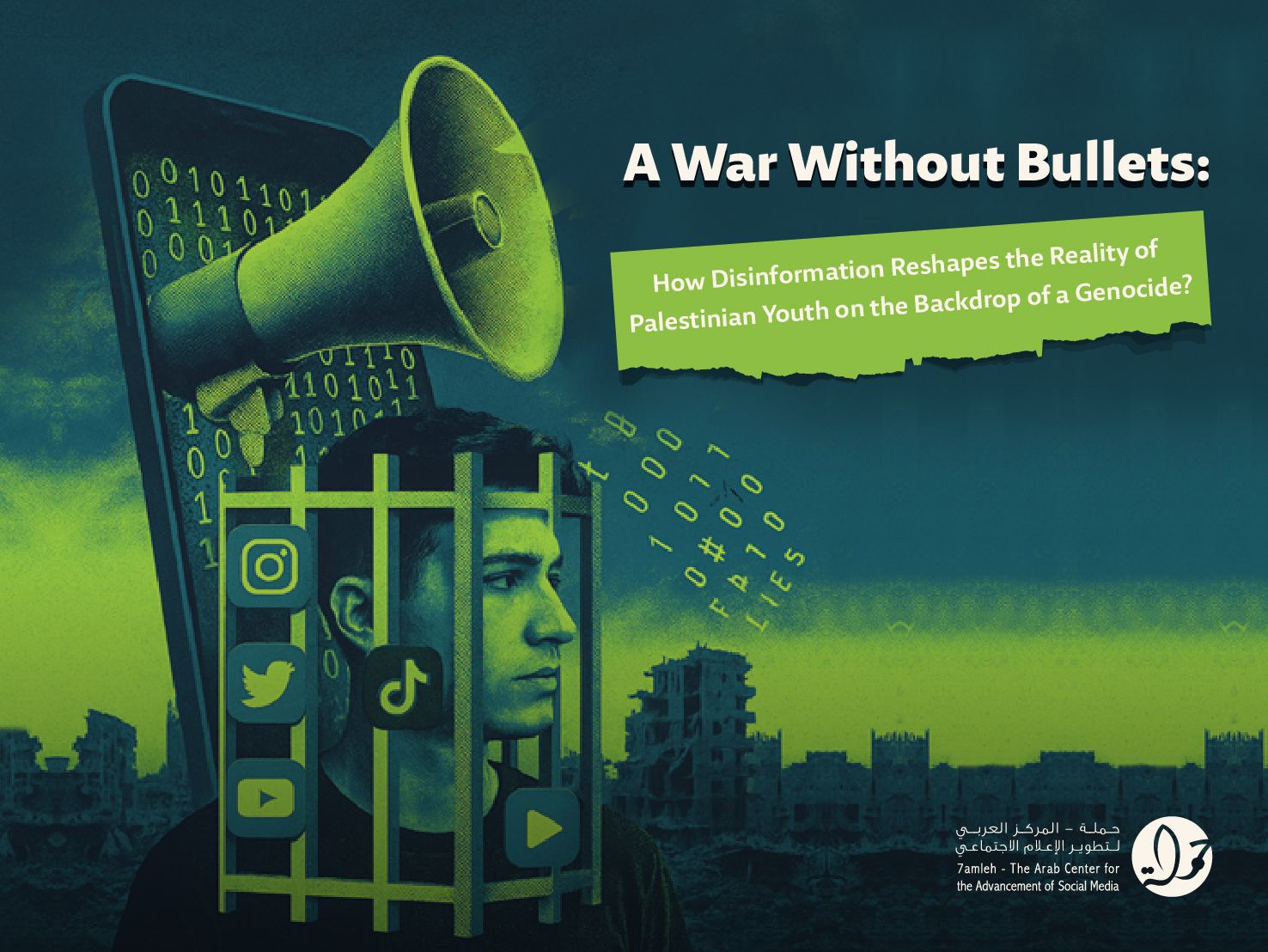RAMALLAH, October 15, 2025 (WAFA) - 7amleh - The Arab Center for the Advancement of Social Media has released a new position paper titled “A War Without Bullets: How Disinformation Reshapes the Reality of Palestinian Youth on the Backdrop of a Genocide?” The paper examines how disinformation has become one of the central tools of Israel’s war on Gaza—not only to justify genocide but also to reengineer the collective consciousness of both Palestinians and the global public, particularly among youth.
The paper highlights that information has become a parallel battlefield to military operations. The Israeli government has deployed various digital tools—including artificial intelligence, paid propaganda, cyberattacks, fake accounts, algorithmic manipulation, and press censorship—to create a distorted reality that reshapes truth and legitimizes aggression. Disinformation, it argues, is no longer a symptom of media bias but a deliberate strategy to dominate consciousness and control narratives serving Israel’s political and military interests.
Since October 7, 2023, Israel has systematically used disinformation to achieve several goals: dehumanizing Palestinians by portraying them as a constant threat to justify violence; fabricating false “moral” justifications that frame its assault as a “just and necessary war”; rallying internal Israeli support; and deflecting public criticism of political and military leadership. Disinformation has also been weaponized to deepen divisions within Palestinian and Arab societies, control international media narratives, and polish Israel’s global image through fabricated and AI-generated content that presents it as a “humanitarian actor” while concealing war crimes.
The paper sheds light on the severe effects of disinformation on Palestinian youth—the group most exposed to digital content during the war. False information about “safe zones” and “humanitarian corridors” led to life-threatening decisions that endangered civilians. Manipulated information also misled international policymakers, prompting biased and harmful policies. Moreover, the study reveals that disinformation has damaged the psychological and cognitive well-being of Palestinian youth, intensifying fear and confusion, eroding trust in media, institutions, and tech companies, and restricting their ability to access accurate information and make informed decisions.
The paper stresses that disinformation has undermined epistemic justice for Palestinians by stripping their voices of credibility in global media spaces while entrenching Israeli narratives in international forums. It concludes that the war on Gaza has become a double war—one on the ground and another on truth and consciousness—where images and algorithms are weaponized to weaken Palestinians and dominate their story.
Nadim Nashif, General Director of 7amleh, stated: “The war on truth is not a side effect of the war on the ground—it is a condition for its continuation. When algorithms control what we see and hear, disinformation becomes a weapon that strikes awareness before the body. Protecting Palestinian youth today means protecting their right to knowledge and their ability to tell their own reality without bias or digital repression.”
The paper calls for a comprehensive approach to counter disinformation, starting with enhancing media literacy and critical digital education among Palestinian youth, and reforming international and local legal frameworks to hold accountable those producing or spreading false information during conflicts. It also urges pressure on tech companies to address algorithmic biases and safeguard Palestinian digital rights, develop tools to monitor coordinated disinformation campaigns, ensure transparency of verification and content-review mechanisms, and strengthen cooperation between companies, human rights organizations, and fact-checking networks—while protecting Palestinian users from arbitrary account deletions.
In the media context, the paper urges journalists and news institutions to adhere to verification and accuracy, conduct ongoing training to detect disinformation during conflicts, prioritize verification of military-related claims, and ensure Palestinian sources are centered in coverage.
7amleh concludes that the war on Gaza has exposed disinformation as one of the most dangerous instruments for controlling perception and rewriting truth. Protecting Palestinians today, therefore, means protecting their voices, narratives, and right to knowledge—because whoever controls information controls consciousness, and whoever distorts the narrative paves the way to justify war crimes.
T.R.









